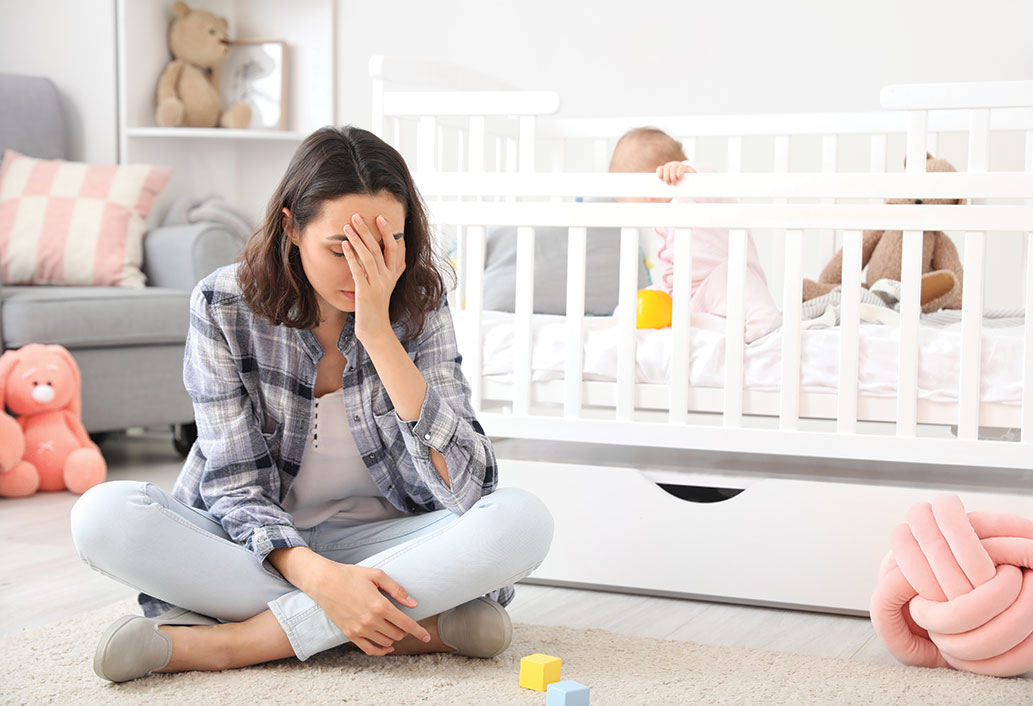- Saaha Building, Block A, Suite 519, Downtown Dubai
- appointments@sage-clinics.com

We have probably heard about some mood changes that may affect mothers after giving birth, the so-called “baby blues”. “Baby Blues” is a common short condition lasting several days within the first two weeks following birth, characterized by sadness or moodiness. It doesn’t require treatment; it resolves spontaneously within 3 to 5 days. Indeed, pregnancy and parenthood introduce many unknowns and unexpected challenges in parents’ lives, including learning how to deal with and manage new responsibilities. It’s not surprising that it can be challenging to adjust to such changes.
However, when symptoms are prolonged and more severe, this may be postpartum depression. When we talk about Postpartum Depression (PPD), we are referring to a depression that can occur during pregnancy or after delivery.
Symptoms last longer than two weeks and require treatment; they may begin as early as the third trimester of pregnancy or as late as four weeks to 1 year postpartum. Based on different studies it is suspected that 1 in 7 childbearing women is affected.
Although the underlying cause is unknown, PPD has been related to physical changes, sleep disruption, fatigue, changes at home, changes in previous patterns and dynamics in the mother’s life (e.g., spending more time alone, exercising less, losing contact with friends, etc.), together with other stressors and /or unexpected circumstances. All of them influence mood, thoughts, and emotions.
Depression impacts the person’s physiological, emotional, and psychological functioning; it affects relationships with others, including the newborn. Many depressed mothers may feel discomfort around their babies or lack feelings towards them. Depressed mothers have greater difficulty perceiving their child’s demands and emotional expressions. Maternal depression has proved to influence the child’s cognitive and emotional development.
The father or support person also deserves attention during the postpartum period. 1 in 10 fathers suffers from PPD or anxiety; they may be more tense and irritable, have difficulties bonding with the newborn, find it difficult to cope with the changes. We cannot overlook those emotional changes; independently of the relationship with the mother, the partner’s involvement positively affects the child’s development.
PPD can be managed with therapeutic care. An adapted form of Cognitive Behavioral Therapy has proved efficient in treating PPD administered individually or in a group.
Mothers suffering from PPD might not believe treatment is necessary unless they are in a very severe condition (unable to function or to feel suicidal), not being aware that they have postpartum depression. It is essential that the immediate environment of the mother helps them recognize distress and altered function and encourages them to seek assessment and mental health care.
If you have doubts about your current emotional state or of the person close to you, don’t hesitate to be assessed by a professional and get help if needed.
Written by: Ana Gomez
Clinical Psychologist at Sage Clinics
